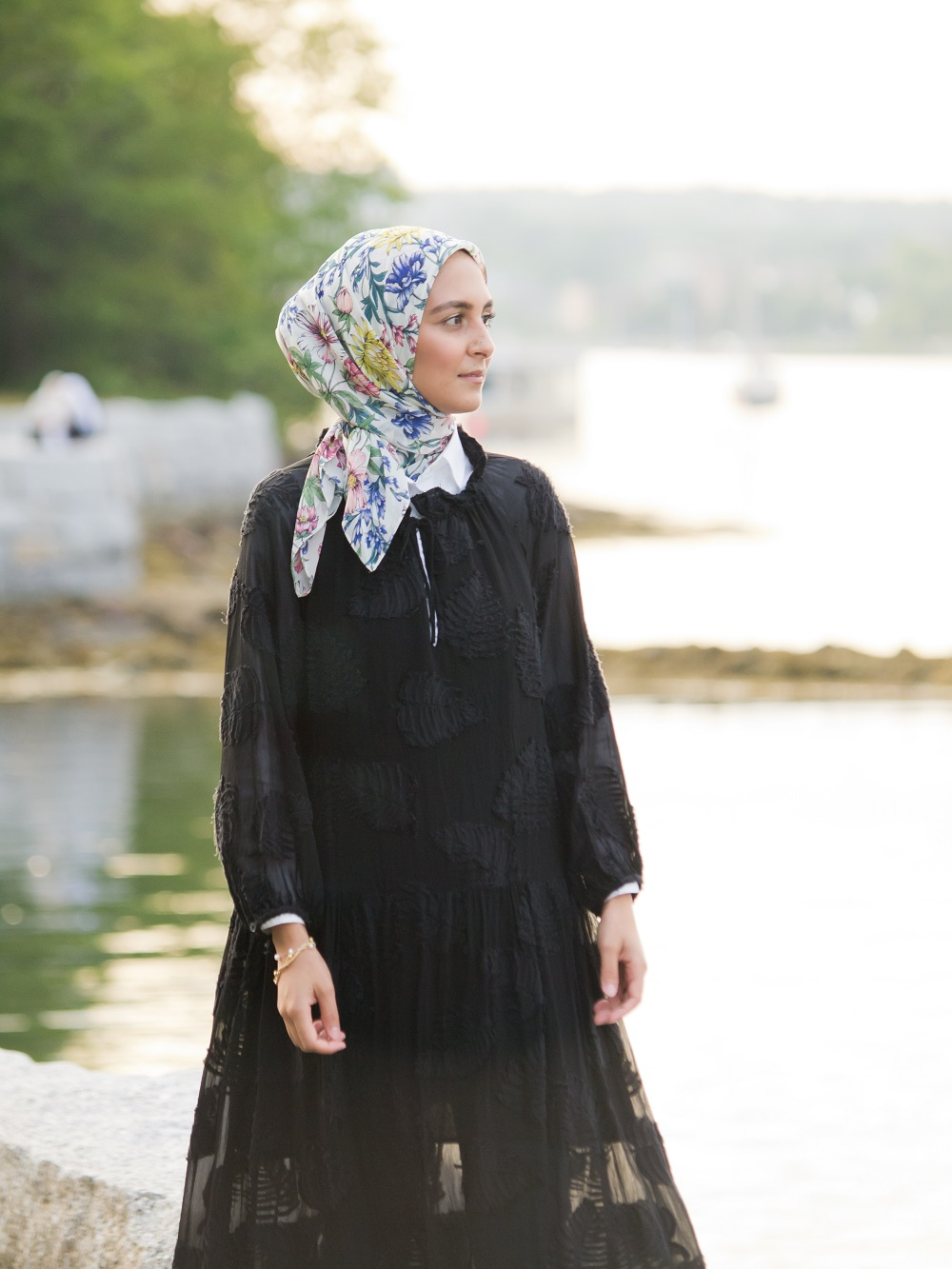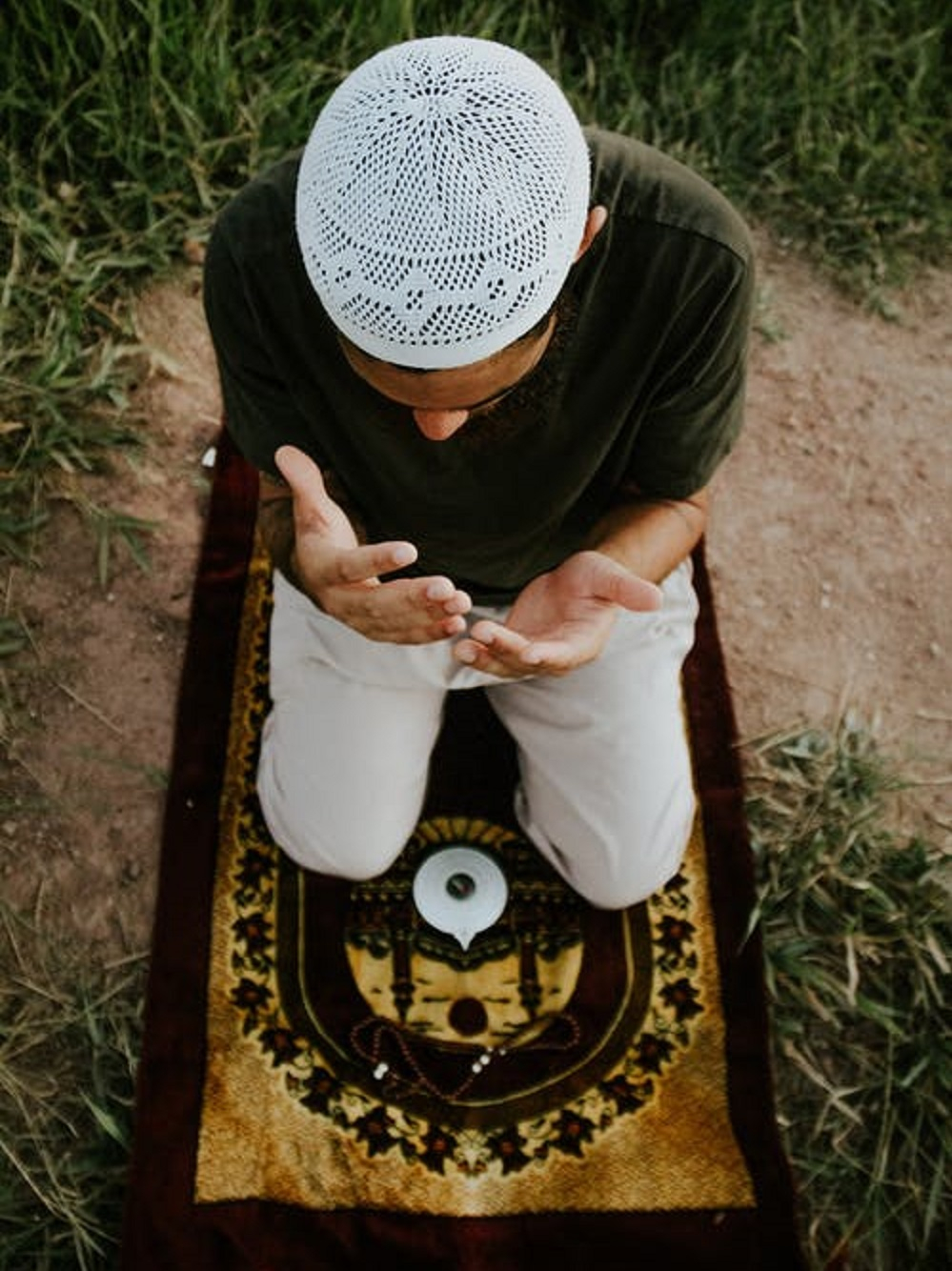Allah (S) Has the Capacity for Your Grief
Faith
|
Nov 20, 2020
|
7 MIN READ

Image source: Unsplash
If there’s one ayah I could use to describe the year of 2020, it would be, “But they plan, and Allah plans. And He is the best of planners.” [8:30] I think most would agree that this year has grounded so many of us in our belief that Allah (S) is solely in control of our affairs in this life (and the hereafter).
In addition to the obstacles caused by the pandemic, many of us are going through our own personal trials, one after the next. This year is a testing one, and I ask Allah (S) to shower us with patience and strong faith. Especially when death is involved.
Death is inevitable. We are reminded of this in Surah Al-Imran, verse 185: “Every soul will taste death.” Regardless of your religious background, the reality of death is shared unanimously and accepted by all. Yet, when death comes knocking on our door it is still a shock, an often uninvited guest interrupting our lives and forever changing us. My sweet mother-in-law, and dear grandfather returned to their Lord this year, both within two months of each other. There was no preparation or easing into it. In what seemed like overnight, our lives were flipped upside down.
Losing my mother-in-law, who was an active part of my daily life, has been extremely difficult both on a personal level and by being the mother to her grandchildren and wife to her only child. Losing my grandfather overseas has also been painful, as a granddaughter and also daughter seeing her mother grieve a parent. Experiencing their deaths through the various roles I play has been a personal challenge. Trying to maintain the harmony of switching roles feels like an endless game of musical chairs.
Sometimes I find myself consoling my husband, father-in-law and my mother. Other times I am helping my four-year-old comprehend the loss of her grandmother while tending to my 18-month-old, who can sense the change around him. All the while I am also grieving their loss and sometimes am the one who needs comforting. Although their deaths are still raw and I am still processing the losses and going through the various stages of the grieving process, I have been able to collect some insight and lessons I’ve learned as I continue on my own journey of grief and healing.
Learning to Live Without Them
Experiencing the death of a loved one is quite literally an experience unlike any other. You will become a different person once you’ve suffered a loss. Your life will be different because your loved one is no longer part of it anymore, a void forever lingering over your head. It is as though you are living a new life that does not include those who have passed, and you will have to learn to live without them. Learn to move on and try and move past how integral they once were to your livelihood for the sake of your own mental health. You will have to do this in order to keep going

Danah Shuli
You will look at the world, this dunya, through a different, temporary lens living through the experience that, “Surely we belong to Allah (S) and to Him we shall return.” [2:156] It is our natural instinct as Muslims to recite this verse upon hearing of a death (inna ilahi wa inna ilayhi rajioon). We send it in our condolences, and it can almost feel automated. The true meaning behind this verse didn’t hit me until I lost my mother-in-law.
Her death was a wake up call, a sudden reminder that life is fragile and death knows no age, health or status. Sometimes we may, even for a second, feel immune to it. Young, healthy and needed in various ways, we are so engrossed in our day to day routines that we sometimes may forget this dunya is temporary. That our roles on this Earth will end, but our roles as servants to our Creator are immortal.
At moments when I feel my weakest, when the heart aches of grief so painful that it cannot be comforted by words or physical affection, I find solace in the remembrance of Allah (S) for “Verily in the remembrance of Allah do hearts find rest!” [13:28] Reading and listening to the Quran, reciting the daily morning and evening supplications, performing my daily prayers, maintaining sujood a little longer, raising my hands and pouring my emotions out in du’a, these are all forms of remembering Allah (S) that comfort me when nothing else can.
Allah (S) is As-Samee’, the All-Hearing, and Al-Baseer, the All-Seeing. He is the one who created us. He created our hearts knowing what it needs to help it heal and find comfort. Let your heart lean into the mercy of Allah (S) and find rest in the remembrance of its Creator.
Du’a Will Be Your Constant
Du’a has been my best friend. There is no mediator between my du’a and my Creator. When I find myself missing my loved ones, I raise my hands in du’a. When I find myself wanting to speak to them again, I raise my hands in du’a. When I find myself wanting to continue their legacy, I find comfort in the hadith narrated by Abu Hurairah, may Allah be pleased with him, that the Messenger of Allah (saw) said: "When a person dies, his deeds are cut off except for three: Continuing charity, knowledge that others benefited from, and a righteous son who supplicates for him."
Allowing my loved ones to live through me as a means of staying connected to them and continuing their accumulation of good deeds in this life after their opportunity has been cut off has been a means of peace and closure for me.
In His infinite mercy and love for us, we are reminded that “Allah does not burden a soul beyond that it can bear.” [2:286] For me, this verse is a form of self affirmation. I find myself repeating it throughout my days and at times of immense pain and agony. Allah (S) knows of our pain.
He knows of every tear that is shed, and He reminds us that “Verily with hardship comes ease.” [94:5] Prior to experiencing this magnitude of hardship, I always believed that the ease comes after the pain.
If we take a close look at the verse, Allah (S) is telling us, that rather with hardship you will find the ease. It wasn’t until I experienced the deaths of my mother-in-law and grandfather did I see this verse come to life. Allah (S) sends waves of ease, mercy and patience when we least expect it. When we need it the most. He sends strength we never knew we had. He is Al-Rahman, the Most Merciful, Al-Raheem, the Bestower of Mercy. Look for the ease that comes with your hardship.

Image source: Pexel
My daughter’s birthday reminds me of the life full of hope that is still there to live. My sister’s wedding reminds me that there is still love and happiness to be celebrated. Allah (S) divinely orchestrated a seamless journey amidst a pandemic for my mother to travel and care for her father in his final days and now support her siblings and mom after his passing. And, the outpouring of emotional and physical support from friends and family has been such a comfort. Recognizing the daily blessings we take for granted, that is the ease Allah (S) has put in my path to healing.
If you are grieving the loss of a loved one, I hope you find this helpful. I hope this post will bring your heart comfort. I hope you know, you are not alone in your grief.
Reminders to help you on your healing journey:
1. Recognize that people grieve and cope in different ways.
2. Children are stronger and more resilient than we give them credit for.
3. Grief comes in waves. It weighs us down at different times and in different ways.
4. Allow yourself and those around you to go through the emotions. Your emotions are real, they are valid.
5. Talk to a therapist. Talk to a friend. Talking is healing.
6. Talk to individuals who have gone through a loss. There is something different about connecting with someone who has experienced what you are going through. They will understand your pain and know exactly what to say to console you.
7. Take walks often. Go on hikes. Take a beach or mountain trip. Bask in the creation of your Lord.
8. Ask for help when you need it, especially when figuring out the logistical matters that come up after death (Islamic burial process, inheritance etc.).
9. Lean on your support system. They are there to help you. You are not meant to go through this alone.
Reminders to help you aid someone through their healing journey:
1. Don't ask details about the illness or death unless the person shares their story.
2. Don't compare another death or your experience in an effort to provide comfort. Just sit with your friend or family in grief.
3. Attending the burial and condolences gathering is not a social event. Keep your stay and conversations at a minimum.
4. Show empathy - sometimes that’s in the form of listening, sometimes it’s bringing food or taking care of something for your loved one, sometimes it’s sending them a heartfelt message if you are far away.
5. Don’t follow up your condolences with “Let me know if you need anything,” or “I am here for you” without being proactive. They will not let you know if they need anything. They are extremely vulnerable and are in need of a lot: emotional support, child care, picking up groceries, making meals, etc. Instead, be proactive and ask, “How can I be of service to you during this difficult time?” Send them flowers, drop off their favorite drink, offer to watch their kids, send a thoughtful letter in the mail, send a check in text regularly to let them know you are thinking of them.
“O Allah, forgive our loved ones who have passed and elevate their station among those who are guided. Send them along the path of those who came before, and forgive us and them, O Lord of the worlds. Enlarge their graves and shed light upon them in it.”
Ameen.
If it is helpful to you, please share in the comments how you are managing grief and sadness. If we can be a listening ear for you, we'd like to be.
Subscribe to be the first to know about new product releases, styling ideas and more.
What products are you interested in?

